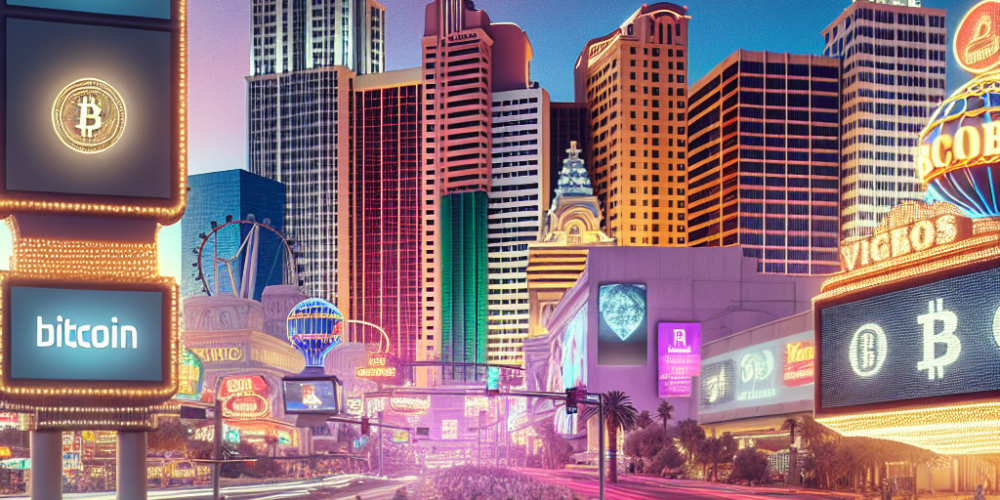Las Vegas, recognized globally for its vibrant nightlife and bustling casino floors, is once again at the forefront of gaming innovation. In a bold move to cater to a more technologically savvy visitor demographic, several top casinos on the Strip have announced the integration of digital currency payments for both gaming and hospitality services. This strategic shift aims to streamline transactions while enhancing the visitor experience, marking a significant evolution in the operational approach of these iconic establishments.
Casino giants such as MGM Mirage and Caesars Palace are leading the charge, having rolled out pilot programs that accept various digital currencies, including Bitcoin, Ethereum, and Litecoin. This initiative not only simplifies financial transactions for tech-savvy tourists but also aligns with broader global trends towards digital financial services and offers an added layer of privacy and security for users.
The decision to adopt cryptocurrency payments comes in response to changing consumer preferences, especially among millennial and Gen Z gamblers, who are showing a distinct propensity for digital spending. According to industry insights, nearly 40% of visitors under the age of 40 prefer non-traditional payment methods, including digital wallets and cryptocurrencies.
“Integrating cryptocurrency as a payment option is a response to the evolving demands of our guests,” said Elizabeth Martinez, VP of Operations at MGM Mirage. “It not only aligns with current technological trends but also ensures a faster, safer, and more seamless experience for our visitors, which is always our top priority.”
The rollout comes at a time when Las Vegas is experiencing a significant upswing in tourist numbers, following a period of lull due to the global pandemic. The introduction of digital payments is expected to not only attract a tech-forward demographic but also reposition Las Vegas casinos as leaders in the adoption of technological innovations in the gaming and hospitality industry.
Security concerns related to digital currencies, such as potential hacking threats and the volatility of cryptocurrency values, are being addressed through robust cybersecurity measures and real-time transaction monitoring systems. Casinos are working in close collaboration with digital currency platforms to ensure that these new payment methods offer both security and reliability, comparable to traditional money handling practices.
Moreover, this shift is anticipated to have economic benefits for the casinos themselves. Transaction fees associated with digital currencies are typically lower than those for credit cards and other conventional payment methods, potentially resulting in significant savings. Additionally, the ease and efficiency of digital transactions could lead to increased spending in other areas of the casinos, including dining, entertainment, and retail.
The adoption of cryptocurrency payments is also expected to have a broader impact on the Las Vegas economy. As one of the first major U.S. cities to extensively integrate digital currency into its primary industry, Las Fruit could set a precedent for other cities and industries to follow.
However, while the excitement around digital currency integration is palpable among casino operators and many visitors, some experts express caution. “The volatility of digital currencies can be a double-edged sword,” explains Dr. Rebecca Geller, an economics professor at the University of Nevada, Las Vegas. “While it offers an innovative way to attract a new customer base, the fluctuating value of these currencies could introduce new risks for both the consumers and the businesses.”
Despite these concerns, the overall sentiment remains overwhelmingly positive. With the pilot programs receiving favorable initial feedback, more casinos across the Strip are poised to adopt this new payment system. The move could herald a new era for not only Las Vegas but potentially for gaming and hospitality industries worldwide, signaling a shift towards more integrated, user-focused, and technologically advanced service offerings.
As Las Vegas continues to adapt and evolve, the successful incorporation of digital currencies into its main economic activities could very well redefine what it means to gamble and enjoy hospitality services in the 21st century, aligning the city even more closely with the futuristic, cutting-edge image it seeks to project.
James Miller is a distinguished casino strategy expert with a wealth of experience in the gambling world. At CasinoNoDeposits.com, James focuses on crafting effective gaming strategies and providing insightful reviews to guide players towards making informed decisions. His deep understanding of casino mechanics and promotional offers makes him a valuable asset to the team. Dedicated to educating players, James ensures that every piece of content is accurate, actionable, and reader-friendly.


